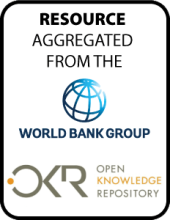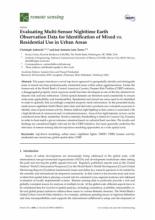Land Library
Welcome to the Land Portal Library. Explore our vast collection of open-access resources (over 74,000) including reports, journal articles, research papers, peer-reviewed publications, legal documents, videos and much more.
/ library resources
Showing items 37 through 45 of 614.The term “inclusive cities” is
increasingly being used as a “catch-all” phrase to signify
intent but with little precision in its use. In this note we
use “inclusive cities” to mean cities in which we see a
The volume emphasizes the need to rethink cities and to imagine a better urban future by providing the reader with diverse perspectives on urbanization such as the changing economic landscape, city competitiveness, entrepreneurship, inclusion, informality, sustainability, and provision of essenti
This joint working paper lays out a
rationale and strategic framework for improving food
security and managing food-price shocks in the Arab
countries. The paper does not provide country specific
The purpose of this paper is to provide
information on how to transform and strengthen pluralistic
agricultural extension and advisory systems in moving toward
the broader goal of increasing farm income and improving
In 2013 the World Bank set itself two
ambitious goals: to end extreme poverty within a generation
and to boost the prosperity of the bottom 40 percent of the
population worldwide. In Latin America, the significance of
This report argues that the practice of
disaster risk management (DRM) is a defining characteristic
of resilient societies, and should therefore be integrated,
or 'mainstreamed', into all aspects of
This paper introduces a novel top-down approach to geospatially identify and distinguish areas of mixed use from predominantly residential areas within urban agglomerations.
Prior to the political and security
crisis of 2012, Mali, a large landlocked country in West
Africa already ranked among the poorest countries in the
world. In early 2012, the vast northern regions fell under
This paper estimates slum residents
willingness to pay for formalized land tenure in Pune,
India. In so doing, it offers evidence that the legal
assurance of slum residents occupancy of their lands could


